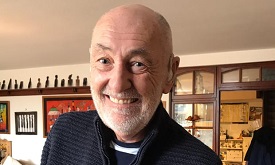-
Study
-
Clearing 2025
- Clearing FAQs
- Clearing VIP
- Clearing Case Studies
- Unlock Your Potential
- Undergraduate Funding
- Search Clearing
-
Undergraduate
- UCAS Clearing & Confirmation 2025
- Application Guides
- UCAS Exhibitions
- Foundation Years
- School & College Outreach
- Information for Parents
-
Postgraduate
- Application Guide
- Postgraduate Research Degrees
- Flexible Learning
- Change Direction
- Register your Interest
-
-
International
International
Northumbria’s global footprint touches every continent across the world, through our global partnerships across 17 institutions in 10 countries, to our 277,000 strong alumni community and 150 recruitment partners – we prepare our students for the challenges of tomorrow. Discover more about how to join Northumbria’s global family or our partnerships.
View our Global Footprint-
Quick Links
- Course Search
- Undergraduate Study
- Postgraduate Study
- Information for Parents
- London Campus
- Northumbria Pathway
- Cost of Living
- Sign up for Information
-
International Students
- Information for Students
- International Events
- Application Guide
- Entry Requirements and Education Country Agents
- Global Offices
- English Requirements
- English Language Centre
- International student support
- Cost of Living
-
International Fees and Funding
- International Undergraduate Fees
- International Undergraduate Funding
- International Masters Fees
- International Masters Funding
- International Postgraduate Research Fees
- International Postgraduate Research Funding
-
International Partners
- Agent and Representatives Network
- Global Partnerships
- Global Community
-
International Mobility
- Information for Northumbria Students
- Information for Incoming Exchange Students
-
-
Business
Business
The world is changing faster than ever before. The future is there to be won by organisations who find ways to turn today's possibilities into tomorrows competitive edge. In a connected world, collaboration can be the key to success.
More on our Business Services -
Research
Research
Northumbria is a research-rich, business-focused, professional university with a global reputation for academic quality. We conduct ground-breaking research that is responsive to the science & technology, health & well being, economic and social and arts & cultural needs for the communities
Discover more about our Research-
Quick Links
- Research Peaks of Excellence
- Academic Departments
- Research Staff
- Postgraduate Research Studentships
- Research Events
-
Research at Northumbria
- Interdisciplinary Research Themes
- Research Impact
- REF
- Partners and Collaborators
-
Support for Researchers
- Research and Innovation Services Staff
- Researcher Development and Training
- Research Ethics and Integrity
- University Library - Open Access
- Vice Chancellors Fellows
-
Research Degrees
- Postgraduate Research Overview
- Doctoral Training Partnerships and Centres
- Academic Departments
-
Research Culture
- Research Culture
- Research Culture Action Plan
- Concordats and Commitments
-
-
About Us
-
About Northumbria
- Our Strategy
- Our Staff
- Place and Partnerships
- Leadership & Governance
- Academic Departments
- University Services
- History of Northumbria
- Contact us
- Online Shop
-
-
Alumni
Alumni
Northumbria University is renowned for the calibre of its business-ready graduates. Our alumni network has over 246,000 graduates based in 178 countries worldwide in a range of sectors, our alumni are making a real impact on the world.
Our Alumni - Work For Us

 Phil joined Newcastle polytechnic in 1984 and soon became the Department of Geography’s first ever titled professor in Economic Development and Environmental Management. Born in North Shields in 1948, with family roots back to the Irish miners who came to Tyneside. Phil was schooled at Ushaw College, an austere Catholic seminary, worked as a labourer on the Kielder Dam, and studied at Durham. Phil’s family and experiences gave him vivid understanding of the north-east’s sense of solidarity, community and life’s pleasures. He returned to his beloved North East to start his family after establishing his reputation as a leading young radical geographer at Clarke University in the US between 1976 and 1980, a conscious choice inspired by the Polytechnic’s ethos. Whilst in the US, Phil co-edited the radical geography journal Antipode for two years and began interacting with other US based radical geographers, such as Dick Peet and Neil Smith.
Phil joined Newcastle polytechnic in 1984 and soon became the Department of Geography’s first ever titled professor in Economic Development and Environmental Management. Born in North Shields in 1948, with family roots back to the Irish miners who came to Tyneside. Phil was schooled at Ushaw College, an austere Catholic seminary, worked as a labourer on the Kielder Dam, and studied at Durham. Phil’s family and experiences gave him vivid understanding of the north-east’s sense of solidarity, community and life’s pleasures. He returned to his beloved North East to start his family after establishing his reputation as a leading young radical geographer at Clarke University in the US between 1976 and 1980, a conscious choice inspired by the Polytechnic’s ethos. Whilst in the US, Phil co-edited the radical geography journal Antipode for two years and began interacting with other US based radical geographers, such as Dick Peet and Neil Smith.










